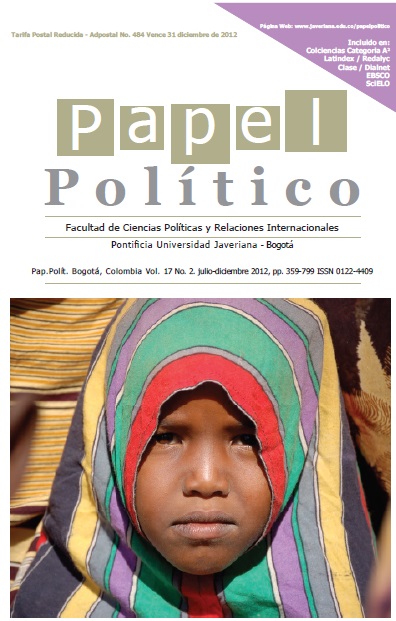Towards an analytical formulation of the world society: from Rostow to Luhmann
##plugins.themes.bootstrap3.article.details##
Since the mid-twentieth century it became increasingly evident that traditional analytical tools of the economic, political and sociological theoris were insufficient to explain the new patterns of interaction and the multinational, transnational and supranational phenomena that overflowed the borders of the nation state. New realities constituted a higher plane of an interconnected world a structure of suprastatal interactions, which dynamics and effects demanded the formulation of a unified theory. Three broad approaches: the controversy about the clash of civilizations, the discussion on globalization and the theorists of risk society suggestedthe possibility of such theory. This paper addresses three attempts of formulation: 1). from an economic perspective (theories of development, dependence and the “world system”); 2). from a political standpoint (the “world polity” of the neo-institutionalists); and 3). from the sociological perspective (the “global society “ of Niklas Luhmann). Our conclusion is that against both the economistic and the political approaches, Niklas Luhmann offers a less unilateral and more complete theoretical solution by transferring to a higher global level the old concept of society
whose borders have long been overwhelmed.
Risk societies, development, dependence, neoinstitutionalism, global society.Sociedades de riesgo, Desarrollo, dependencia, neo institucionalismo, Sociedad Global.


